#Mahsa Amini protests
Explore tagged Tumblr posts
Text
Ellen Ioanes at Vox:
Iranian President Ebrahim Raisi died Sunday in a helicopter crash, a shocking turn of events that immediately raised questions about the Islamic Republic’s future. In the short term, Raisi’s passing is unlikely to alter the direction of Iran’s politics. But it does remove one possible successor to 85-year-old Supreme Leader Ayatollah Ali Khamenei.
In the long term, Raisi’s unexpected death may prove more consequential. The question of Khamenei’s succession is increasingly urgent because of his advanced age. Though Iran’s president can be influential in setting policy, the Supreme Leader is the real seat of power, controlling the judiciary, foreign policy, and elections. Raisi and Foreign Minister Hossein Amirabdollahian’s helicopter made a hard landing sometime on Sunday in Iran’s mountainous northwest, where weather conditions made travel difficult and dangerous. Iranian state media announced the deaths of the two politicians and six others onboard, including three crew members, on Monday after rescue teams finally reached the crash site. The deaths of both Raisi and Amirabdollahian come at a time of internal and external challenges for the Iranian regime. A harsh crackdown after the widespread protests of 2022 and significant economic problems domestically have eroded the regime’s credibility with the Iranian people. Internationally, Iran is embroiled in a bitter regional conflict with Israel as well as a protracted fight with the US over its nuclear program.
In the near term, the first vice president, Mohammad Mokhber, will be the acting president as the country prepares to hold elections within the next 50 days as dictated by its constitution. (The Iranian government includes vice presidencies overseeing different government agencies, similar to US Cabinet-level secretaries; the first vice president is roughly equivalent to the US vice president.) Raisi was considered a potential successor to Khamenei, having already been vetted by the ruling clerics during his 2021 presidential run and having been committed to the regime’s conservative policies. With his death, amid one of the regime’s most challenging periods, Iran’s long-term future is a little less certain.
Within Iran, succession is the biggest question
A hardline conservative cleric, Raisi always wore a black turban symbolizing his descent from the prophet Muhammad. His close relationship with the powerful Islamic Revolutionary Guard Corps (IRGC) fueled speculation that he could succeed Khamenei. The paramilitary force exerts significant sway over internal politics and also wields influence throughout the broader region through aligned groups and proxy forces in Iraq and Syria, as well as Hezbollah in Lebanon, the Houthis in Yemen, and Hamas in Gaza. Raisi was initially elected in 2021 with 62 percent of the vote, though turnout was only 49 percent — the lowest ever in the history of the Islamic Republic, evidence of the crisis of legitimacy in which the government increasingly finds itself. “People don’t want to legitimate the government by participating in what they consider either fraudulent or just non-representative political outcomes,” Firoozeh Kashani-Sabet, Walter H. Annenberg professor of history at the University of Pennsylvania, told Vox.
Throughout his judicial career, Raisi is alleged to be responsible for or implicated in some of the government’s most brutal repression and human rights abuses since the 1979 revolution, including serving on the so-called Death Committee, which was tasked with carrying out thousands of extrajudicial executions of political prisoners in the 1980s. During and after the Iran-Iraq war, there were a number of groups opposed to the regime, as well as supporters of the Iraqi position and even an attempt to attack Iran from Iraq. In order to preserve the Islamic Republic’s legitimacy, Ayatollah Ruhollah Khomeini ordered a sweeping purge of the opposition; many of the dissidents who were arrested were chosen for execution arbitrarily.
Following the disputed 2009 election — which birthed the Green Movement, the most significant threat to the regime in decades — Raisi, then a high-level member of the judiciary, called for the punishment and even execution of people involved in the movement. And as president, he helped oversee the violent backlash to the Woman, Life, Freedom movement that erupted following the death in police custody of Mahsa Amini, a 22-year-old Kurdish woman arrested by the morality police for allegedly wearing her hijab improperly. Raisi’s unpopularity due to his repressive past and worsening living standards for ordinary Iranians had helped further erode the government’s legitimacy, which may affect the upcoming presidential contest.
With the death of Iranian President Ebrahim Raisi via a plane crash, it could have long-term effects, as Ayatollah Ali Khameini could be nearing the doorstep of death and succession plans to succeed him have been thrown into chaos.
#Ebrahim Raisi#Iran#World News#Varzaqan Helicopter Crash#Mahsa Amini Protests#Iranian Revolution#Ayatollah Khamenei#Islamic Revolutionary Guard Corps#Ali Khamenei
11 notes
·
View notes
Text
Rights groups have claimed that Iranian authorities arrested Mahsa Amini’s father and prevented her family from holding a vigil to commemorate the first anniversary of her death.
A report on Saturday in the official IRNA news agency said Amjad Amini had not been arrested. Later in the day, the agency said security forces had foiled an assassination attempt against Amini.
The 1500tasvir monitor, the Iran Human Rights (IHR) group and the Kurdistan Human Rights Network (KHRN) said Amjad Amini had been arrested early on Saturday in Saqez in western Iran and released after being warned not to hold a memorial service at his daughter’s graveside.
The death of Mahsa Amini, a 22-year-old Kurdish woman arrested by Iranian morality police last year for not adhering to mandatory dress codes, led to months of some of the biggest protests against clerical rule ever seen in Iran.
More than 500 people, including 71 minors, were killed in the protests, while hundreds were wounded and thousands arrested, rights groups said. Iran executed seven people linked to the unrest.
Protests, international attention
As night fell on Saturday, a heavy security presence in Iran’s main cities and in mostly Kurdish areas appeared to have deterred large-scale protest rallies but human rights groups reported sporadic confrontations in several areas of the country.
Videos posted on social media showed people gathered on a main avenue in the capital Tehran cheering a young protesting couple as drivers honked their car horns in support.
One of Iran’s most high-profile prisoners, prize-winning rights activist Narges Mohammadi and three other women detainees burned their headscarves in the courtyard of Tehran’s Evin prison to mark the anniversary, according to a post on Mohammadi’s Instagram.
Outside Tehran, at the Qarchak prison for women, rights groups said a fire broke out when security forces quelled a protest by inmates. The Kurdistan Human Rights Network said special forces beat up women in the prison and fired pellet bullets. IRNA reported that a fire engulfed the women’s ward in Qarchak after convicts awaiting execution set fire to their clothes. It said the blaze was put out and there were no casualties.
Protests were also reported in the city of Karaj, west of Tehran, and in Mashhad, northeast of the capital. One video posted on social media showed a group of demonstrators in the Karaj neighbourhood of Gohardasht chanting, “We are a great nation, and will take back Iran”, while drivers honked their horns and shouted encouragement.
In the Kurdish city of Mahabad, rights group Hengaw said security forces opened fire, wounding at least one person. It also said several people were wounded in the city of Kermanshah but there was no official confirmation of either incident.
In Amini’s home town, the semi-official Fars news agency reported that police using a pellet gun had seriously wounded a man who “ignored a warning”. It said the man was in an intensive care ward after undergoing an operation, but provided no more detail.
Hengaw identified the man as Fardin Jafari and said he had been shot in the head near the cemetery where Amini is buried.
Al Jazeera could not verify the report.
Hengaw also reported a widespread general strike in Kurdish areas on Saturday, circulating video and photos that appeared to show streets largely empty and shops shuttered. Human Rights Activists in Iran, another group that closely follows events in the country, also reported the general strike.
But state media dismissed the reports, with IRNA saying Saqez was “completely quiet” and that calls for strikes in Kurdish areas had failed due to “people’s vigilance and the presence of security and military forces”.
The agency quoted an official in the Kurdistan province as saying: “A number of agents affiliated with counter-revolutionary groups who had planned to create chaos and prepare media fodder were arrested in the early hours of this morning.”
Iran’s Revolutionary Guard, meanwhile, arrested a dual national suspected of “trying to organise unrest and sabotage”, according to IRNA, one of several arrests of “counter revolutionaries” and “terrorists” reported.
Demonstrations and vigils were also held outside Iran, with protesters gathering in Sydney, Paris, London, Rome, Toronto, New York and Washington, DC, to commemorate Amini’s death.
Paris Mayor Anne Hidalgo announced that a garden in the French capital now carried Amini’s name. The mayor called Amini an Iranian resistance hero and said Paris “honours her memory and her battle, as well as those of women who fight for their freedom in Iran and elsewhere”.
The Villemin Garden that now also bears Amini’s name is in Paris’s 10th district, next to a canal with popular boat tours.
In Washington, DC, the capital of the United States, hundreds of protesters gathered in a park across from the White House holding portraits of Amini. Speakers led the crowd in chants of “Say her name … Mahsa Amini”, and recited, “We are the revolution”, as well as, “Human rights for Iran!”
In a statement on Friday, US President Joe Biden said, “Mahsa’s story did not end with her brutal death. She inspired a historic movement – Woman, Life, Freedom – that has impacted Iran and influenced people across the globe.”
The US, meanwhile, announced sanctions on more than two dozen individuals and entities connected to Iran’s “violent suppression” of protests, while the United Kingdom imposed sanctions on four Iranian officials.
Iran has blamed last year’s protests on the US and other foreign powers, without providing evidence, and has since tried to downplay the unrest even as it moves to prevent any resurgence.
In a report last month, Amnesty International said Iranian authorities “have been subjecting victims’ families to arbitrary arrest and detention, imposing cruel restrictions on peaceful gatherings at grave sites, and destroying victims’ gravestones”.
Many journalists, lawyers, activists, students, academics, artists, public figures and members of ethnic minorities accused of links with the protest wave, as well as relatives of protesters killed in the unrest, have been arrested, summoned, threatened or fired from jobs in the past few weeks, according to Iranian and Western human rights groups.
Iran’s Etemad daily reported in August that the lawyer for Amini’s family also faced charges of “propaganda against the system”.
If convicted, Saleh Nikbakht faces a jail sentence of between one and three years.
3 notes
·
View notes
Text
Today marks one year anniversary of 2022 Iranian uprising against the oppressive Islamic Republic regime. An uprising that started with the brutal murder of a young kurd woman, Mahsa Jina Amini, for "inappropriate hijab".
For the past couple of weeks, the regime has prepared their forces to beat down any new movement immediately. The streets of Tehran and many other cities are lined with anti riot forces and police cars. In Saqez, the home city of Amini family, they've stationed the army around the city to massacre people in case they try to start another wave of protest. Mahsa's father has been arrested alongside some family members of other last year uprising martyrs.
There has been small protesting gatherings in Iran in the last two days, there has already been some arrests and violent crackdowns on protesters. I hear people chanting from my neighborhood homes. The government would commit as many bloodbaths as it takes to secure their position, but you can't beat people into obedience when they hate you from the bottom of their hearts.
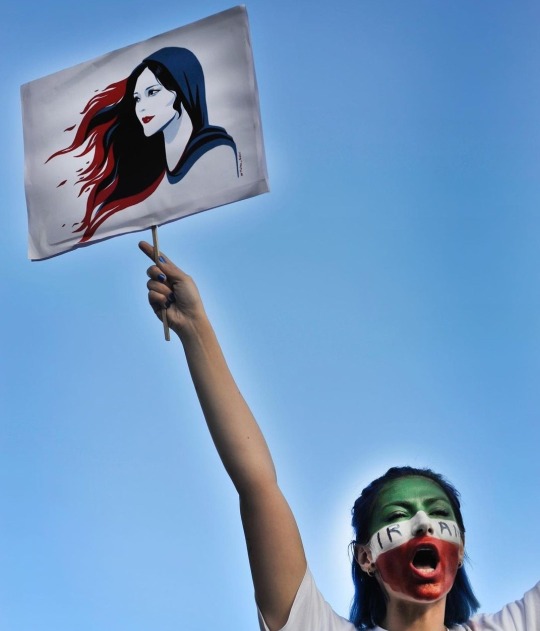
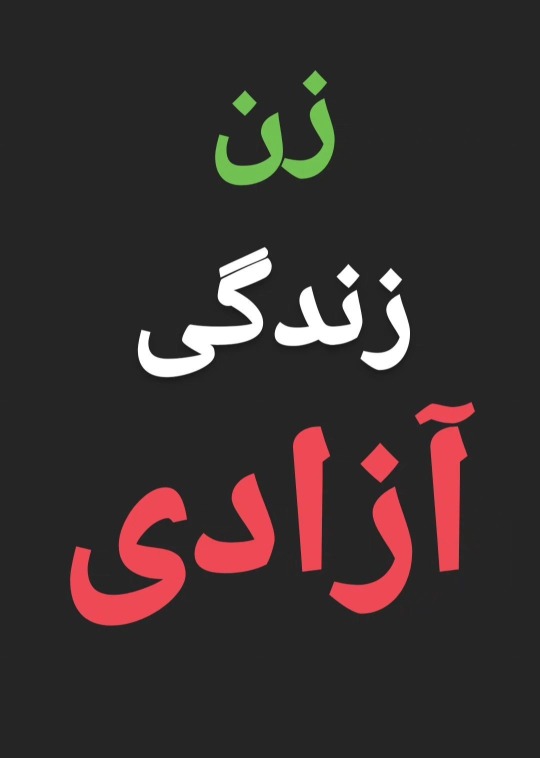
Woman life freedom
#iran#mahsa amini#iran protests#human rights#iran revolution#women's rights#middle east#politics#woman life freedom
1K notes
·
View notes
Text
update on Toomaj Salehi, the Iranian rapper who supported the protests in '22 and '23. His lawyer has told the press Salehi has been sentenced to death today. There's still the possibility to appeal, which they will. However, it's not an anomaly. More protesters have been sentenced to death. (source)
(made some small edits and added tags)
271 notes
·
View notes
Text
We didn't almost died trying to free our country from dictator so that now you can take his side and cheer for the fascist regime who hasn't stopped fucking with us for 40_50 years
224 notes
·
View notes
Text
today is the 1 year anniversary of the death of Mahsa Amini at the hands of Iran’s Morality Police. it sparked massive protests by Iranian citizens, largely women, seeking rights, justice, and freedom.
the movement is not over. progress is being made, but it has been brutal. many have been jailed, tortured, assaulted, and killed. please continue supporting Iranian citizens and uplifting their message.
#mahsa amini#justice for mahsa#mahsa jina amini#women life freedom#say their names#iran protests#morality police
712 notes
·
View notes
Text
Did everyone just collectively forget that the iran is an islamist dictatorship
#i knew the hijab protests were just a temporary trend that everyone forgot but damn#how did yall went from bashing the regime to openly praising it#islamic republic of iran#iranian#iranians#iranian government#iranian women#iran women#iran protests#free iran#mahsa amini#jina amini#feminism#middle east#women rights#human rights#woman life freedom#iran news#iran
101 notes
·
View notes
Text
youtube
New Rule: Gender Apartheid | Real Time with Bill Maher
And finally, New Rule: if you're out protesting for a couple of hours wearing this...
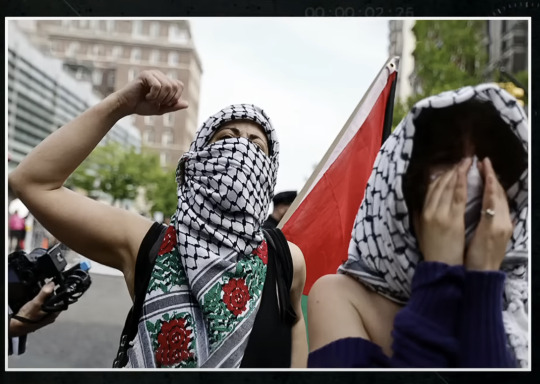
... you have to go all the way and spend an afternoon running errands wearing one of these.
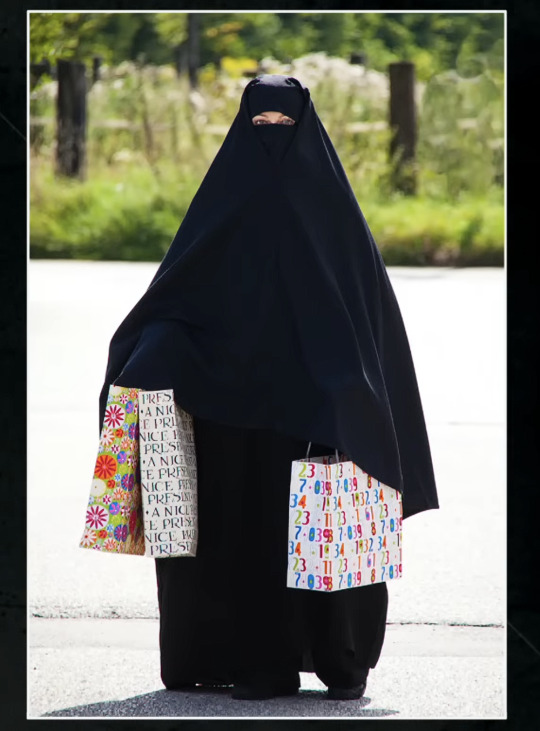
You can't side with the people who ruthlessly oppress women without at least getting a taste of what you're supporting.
Well, now that summer is here and the Hamas-backing college protesters have dispersed back to their summer internships at Goldman Sachs, I thought it might be a good time to say this: I actually admire your youthful idealism, and our world would be poorer without it. Much like your parents who just wasted 300 grand on that ignorance factory you call a college.
Not that I think it's your fault, being this poorly educated and morally confused. That takes a village. Shitty schools, overindulgent parents, social media, that priest who rubbed lotion on you.
But three cheers to you for at least having the impulse to seek a cause in something bigger than yourself. It's just that the one you picked, you missed the boat by a fucking mile.
But here's the good news. You want a cause? Cuz I totally got one for you. Apartheid. Yeah, apartheid, the thing you've been shouting about with Israel for months. Never mind that Israeli Arabs are actually full citizens. You learned that word from a 2 Chainz song and discovered that protesting South Africa's apartheid in the 80s was a righteous cause, and so it was. To this day, when celebrities are asked, who is the person they most admire, one name is always the safest choice.
So, naturally, when you heard that Israel was an apartheid state it gave you such a boner you literally pitched a tent.

You knew how wrong it was when tens of millions of South Africans had been treated like second class citizens just because of their race.
But here's the thing. Today, right now, hundreds of millions of women are treated worse than second class citizens. When you mandate that one category of human beings don't even have the right to show their face, that's apartheid. And it goes on in a lot of countries.
For the last couple years, women in Iran have been saying, "take this hijab and shove it." Because in 2022, a young woman named Mahsa Amini was arrested for wearing her mandatory hijab incorrectly and then died in police custody. And now security forces have killed over 500 people protesting her death and this obvious human rights violation. How about defunding those police?
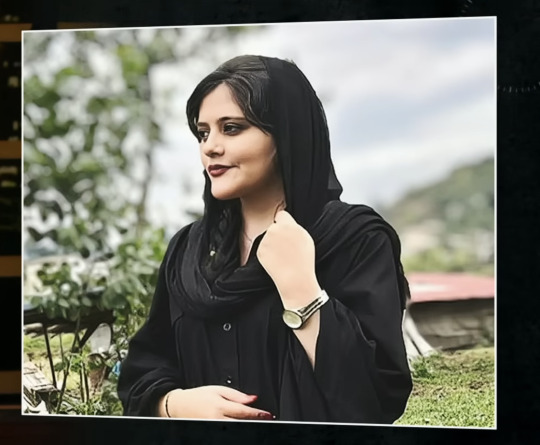

Amnesty International says that, "Iranian authorities are waging a war on women that subjects them to constant surveillance beatings sexual violence and detention." What P. Diddy calls a hotel stay.
In Iran, MeToo isn't a movement, it's what a woman says when another woman says, my life sucks.
Yasmine Muhammad is a human rights activist who got married off to a Muslim man with fundamentalist views about women not exactly uncommon in the Muslim world. He forced her to wear the niqab all the time, including once beating her because she took her hijab off at home, because the apartment had a window through which people might see in. And this was in Vancouver.
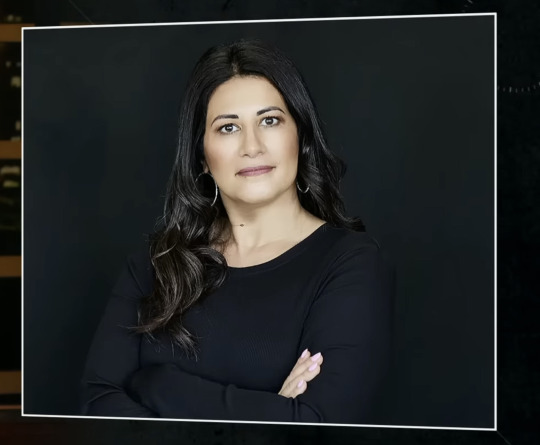
Here's what Yasmine said about veiling.
"It just suppresses your humanity entirely. It's like a portable sensory deprivation chamber and you are no longer connected to humanity. You can't see properly. You can't hear properly. You can't speak properly. People can't see you. You can only see them. Just little things. Passing people on the street and just making eye contact and smiling, that's gone. You're no longer part of this world, and so you very quickly just shrivel up into nothing under there."
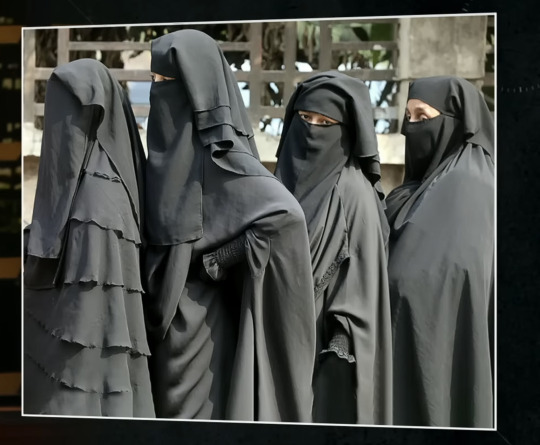


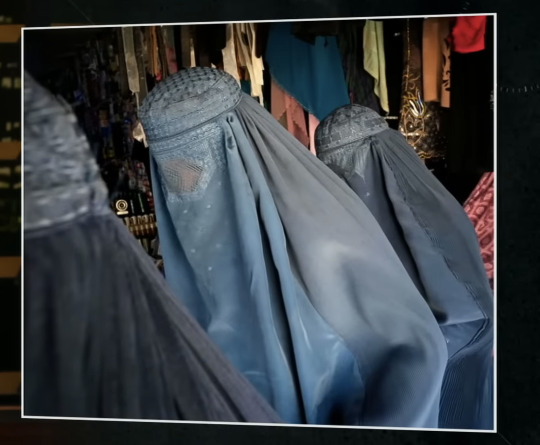
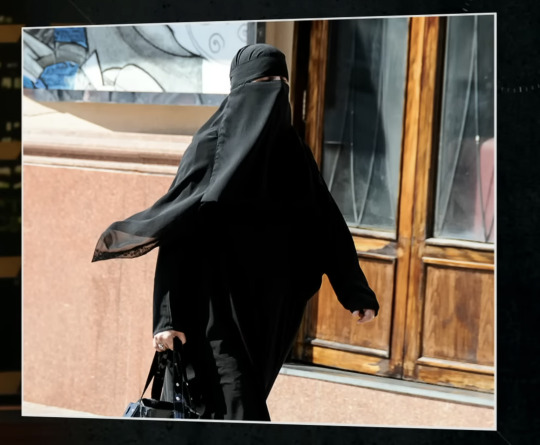
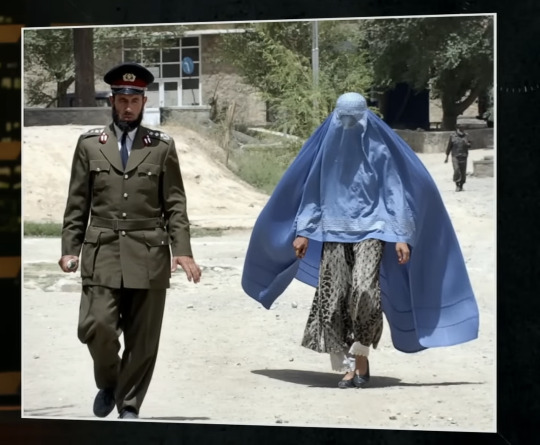
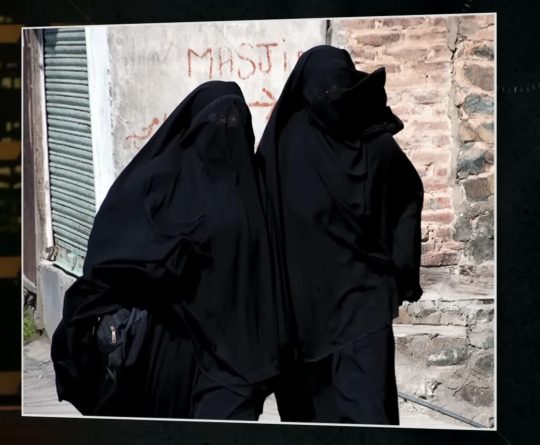
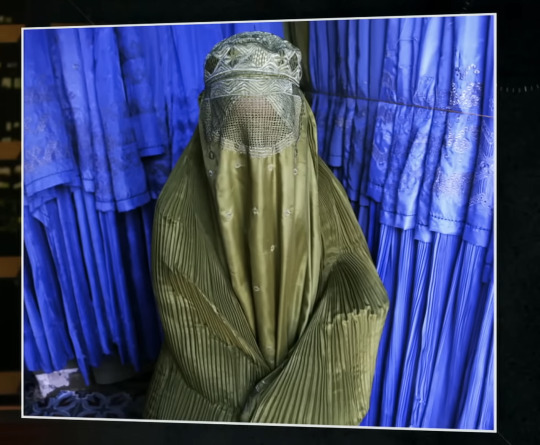
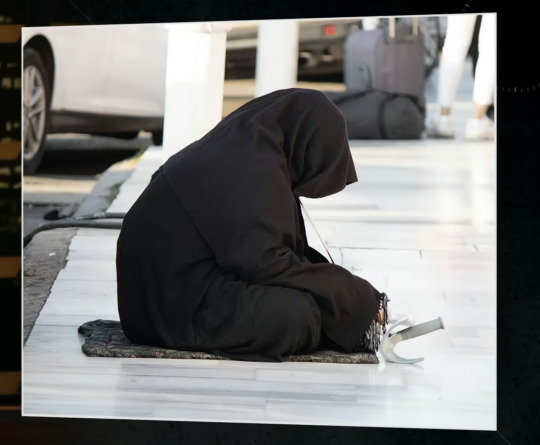
And that's my answer when someone says "Islamophobe."
Really, feminists? Come on, there's got to be a happy medium between a husband making his wife wear this, and a husband making his wife wear this.
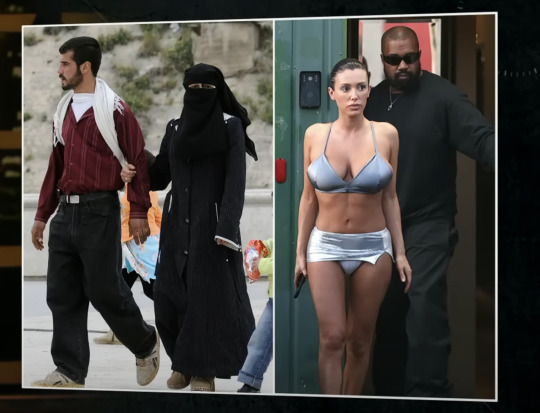
I know 1619 was bad, but this is happening right now, right under your nose rings. And it's not just the clothes. 15 countries in the Middle East, including Gaza, have laws that require women to obey their husbands. Laws. Not just Harrison Butker's opinion.
And those societies also have guardianship laws, which means a woman needs permission from her husband to work, to travel, to leave the house, to go to school, to get medical attention. Nothing?
Honor killings, where women are murdered by their own fathers and-or brothers happen so frequently they can't even have an accurate account of how many.
In 59 countries, there are no laws against sexual harassment in the workplace, and many have no laws against domestic violence or spousal rape. 20 countries have marry-your-rapist laws. Multiple societies have laws about what jobs women can and can't do. Make a Barbie movie about that. 30 countries practice female genital mutilation, and 650 million women alive today were married as children.
Kids, if you really want to change the world and not just tie up Monday morning traffic, this is the apartheid that desperately needs your attention. Gender apartheid. This is what should be the social justice issue of your time. How about, from the river to the sea, every woman shall be free?
But in reality, it's not an issue at all. For one reason: the people who are doing it aren't white. I hate to have to be the one to break it to you kids, but non-white people can do bad things too. Now, white on black racism certainly has been of one of history's most horrific scourges. But also, it's true that in today's world being non-white means you can get away with murder.
So good on you kids for following your instinct to protest social injustice. Just remember, when it comes to finding a cause, pulling your head out of your ass is an important rite of passage.
==
They won't do it not just because it's Intersectionally inconvenient, but also because it would require admitting that, as citizens of first world countries and students of Ivy League universities, not only do they not live in a "patriarchy," but they're some of the freest, most privileged, most self-determining people who have ever lived in the world at any time, ever.
And, having spent decades crafting a narrative of being long-suffering and "oppressed," they'd have to surrender the significant social, political and economic capital that narrative affords, by fighting for women in Iran, Gaza, Afghanistan and other countries to have the same rights and privileges they take for granted. And regularly spit on.
#Bill Maher#Real Time with Bill Maher#pro palestine#college protests#student protests#feminism#western feminism#islam#hijab#Yasmine Mohammed#Iran#islamic regime#Mahsa Amini#iran protests#gender apartheid#apartheid#islam ruins everything#gaza strip#anti apartheid#this is islam#religion#religion is a mental illness#Youtube
77 notes
·
View notes
Text




Iranian women cutting their hair in protest of the death of Mahsa Amini.
21 notes
·
View notes
Text
“Woman, life, freedom.” How the women of Iran protest the hijab
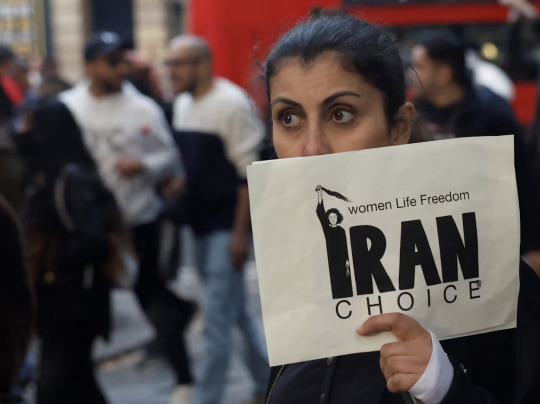
(Clodagh Kilcoyne/Reuters)
In September 2022, 22-year-old Mahsa Amini was arrested by morality police in Tehran, Iran, for refusing to wear a hijab. Hijabs have been mandatory in Iran for women since the revolution in 1979, when the Imperial State of Iran was replaced with the Islamic Republic. Only a month after the victory of the revolution, Iran's new head of state, Grand Ayatollah Ruhollah Khomeini, declared: “Sin is not allowed in Islamic Cabinet ministries. Women should not appear naked in the ministries. Women are allowed only with a hijab. There is no obstacle to them working but only if they wear the hijab as prescribed by Islamic law.”

(Aristotle Saris/AP Photo)
The following day, over 15,000 Iranian women celebrated International Women’s Day, gathering in front of the prime minister’s office in Tehran in protest against the mandatory hijab. As of 1983, Parliament has since passed the Islamic Penal Code, which establishes a punishment of “up to 74 lashes for women appearing without Islamic hijab in public.” In 1996, the law was revised and replaced with “physical punishment with incarceration and fines.”
In the case of Mahsa Amini, her suspicious death in police custody sparked massive outrage across the country, prompting widespread and large-scale protests. Videos were posted and spread online of Iranian women cutting their hair and burning their hijabs, which served as a powerful way to both protest the morality police responsible for Amini’s death and reject the policy of compulsory hijab. Iranians— both men and women, peacefully protested in the streets of Tehran, and in big and small towns across the country, chanting, “Woman, life, freedom.”
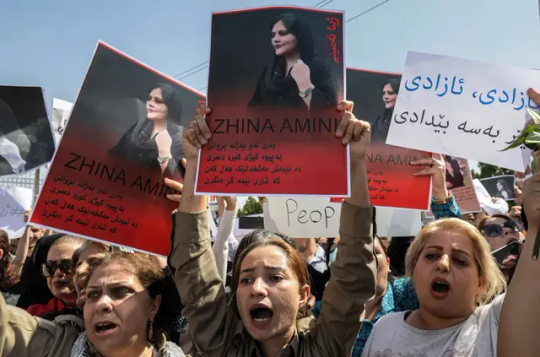
(Safin Hamed/AFP/GI)
While many of these protests have been shut down or lost traction and attention outside of Iran, political activism in the name of women's equality and freedom continues to thrive in different forms. Widely recognized imprisoned female activists continue to leak statements and voice recordings online, describing and criticizing their living conditions in prison and encouraging other activists to keep working. Discussions and online meetings continue to be held in private online forums such as Twitter, Telegram, and WhatsApp. The women of Iran continue to engage in quiet civil disobedience regardless of the risks or consequences.
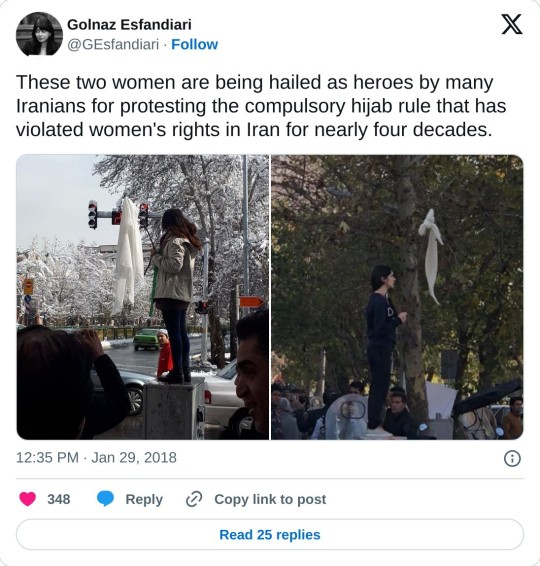
In 2017, five years before Mahsa Amini's death, a young woman named Vida Movahed climbed and stood on top of a utility box on one of Tehran's busiest streets. She stood, bareheaded—calmly waving her white scarf on a long stick. Her peaceful yet powerful display of defiance went viral, and photos soon circulated of other Iranian women taking off their headscarves in public. These acts of resistance contrast the violent treatment women like Mahsa Amini face at the hands of the Iranian government and police. They serve as an important example and reminder of the power the people can hold.
Kenyon, Peter. “Public Protests Are over but More Iranian Women Are Refusing to Wear the Hijab.” NPR, NPR, 20 June 2023, www.npr.org/2023/06/20/1183152677/public-protests-are-over-but-more-iranian-women-are-refusing-to-wear-the-hijab.
Bazoobandi, Sara, et al. “Hijab in Iran: From Religious to Political Symbol.” Carnegie Endowment, Carnegie Endowment for International Peace, 13 Oct. 2022, carnegieendowment.org/sada/88152.
Alfoneh, Ali, et al. “The End of Mandatory Hijab in Iran?” Arab Gulf States Institute in Washington, 28 Feb. 2024, agsiw.org/the-end-of-mandatory-hijab-in-iran/.
Tajali, Mona. “Women’s Activism in Iran Continues, despite Street Protests Dying down in Face of State Repression.” The Conversation, 16 Nov. 2023, theconversation.com/womens-activism-in-iran-continues-despite-street-protests-dying-down-in-face-of-state-repression-213514.
Radio, CBC. “Peace Movement: The Impact of Grassroots Activism, Policy, and Culture.” Gray Group International, Gray Group International LLC, 5 Oct. 2022, www.graygroupintl.com/blog/peace-movement.
#thepeacepigeon#hijab#nonviolence#mahsa amini#peace activism#protest#human rights#womens rights#iran revolution
39 notes
·
View notes
Text
#mahsa amini#words to live by#true words#words of truth#protect the children of afghanistan#protect women#protect sacred#protect girls#iranian protests#protect children#iran protests#stand for the women and girls of iran#stand for the women of the muslim world#stand with the girls of afghanistan#stand with the girls of the muslim world#stand with the children of herat city#stand with the children of afghanistan#stand with the women of the middle east#stand with the women of afghanistan#stand with the women of iran#stand with the children of iran#i stand with jk rowling
12 notes
·
View notes
Text
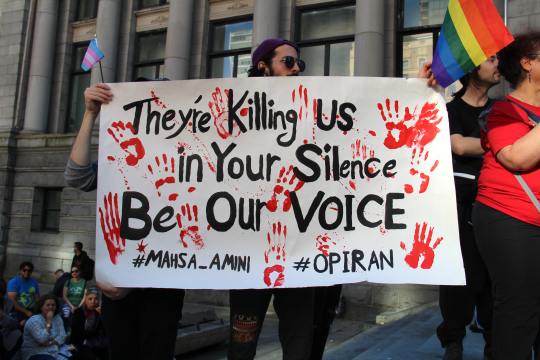
Be sure to check out an article by Human Rights Watch to learn how in Iran the fight for women’s rights has evolved over the years 👇.
#iran#free iran#iran protests#iranian#woman life freedom#women life freedom#women’s rights#human rights#feminism#feminist#mahsa amini
94 notes
·
View notes
Text
saying F U to the regime again and again: a quick update on women vs IR regime
Famous Iranian actresses have been appearing in public without a mandatory hijab. This has been happening since the beginning of the protests. Last month, Kiumars Pourahmad, a well known Iranian screenwriter and director, committed suicide. He had a history of criticizing the regime's political decisions. At his funeral, some of the famous actresses attended without mandatory hijab.
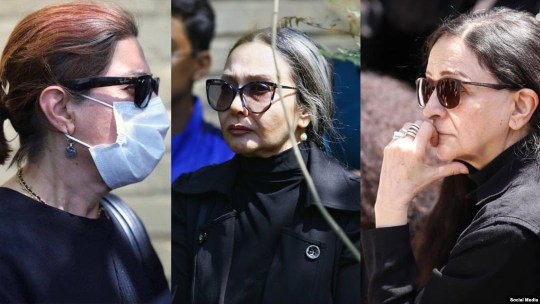
You can see Fateme Motamedarya, Katayoun Riyahi, and Golab Adineh in these pictures from the funeral. Ms. Riyahi was one of the first celebrities who took her hijab off at the start of the Jina (Mahsa) Amini protest and for that she's been the target of IRGC harassment and has been to court.
Last week, in the ceremony of screening of the final episode of Lion's Skin (a persian crime show), actress Pantea Bahram participated without hijab. The manager of Tehran’s Lotus Cinema, where the ceremony was held, was fired for letting her attend without hijab.
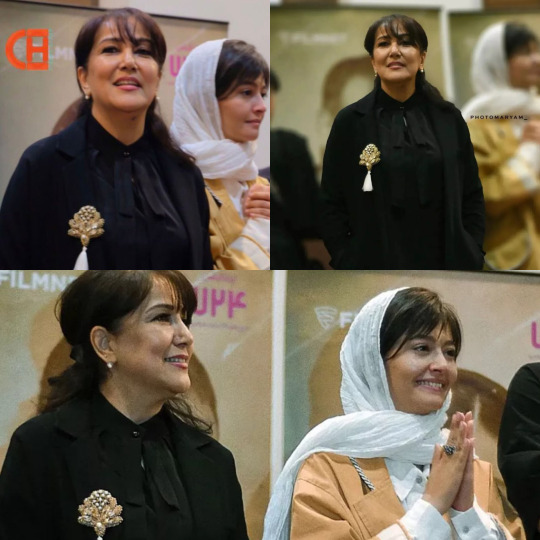
Other than prosecution, the regime has blocked these celebrities' bank accounts. Basij and IRGC members have also attacked and harassed these women online and in real life.
Students on university campuses take off their hijabs. There's an installed version of morality police in universities that monitor students' styles. Female students must wear "appropriate" hijab and male students must wear "manly" clothes (one of my guy friends once was asked to go back home and change his shoes because they were red casual loafers. Apparently that's gay!). When you enroll in Iranian universities, the first thing you do is to go to the security office and sign an agreement that says you promise to follow the Islamic dress code. There are posters all over the campus that says things like "hijab is security" "respect the islamic hijab" and "not wearing appropriate hijab (tight short clothes, too much hair, makeup, etc) would result in legal action". So not wearing hijab on campus, where a lot of security cameras are installed and it's easy to identify you, is a big deal.
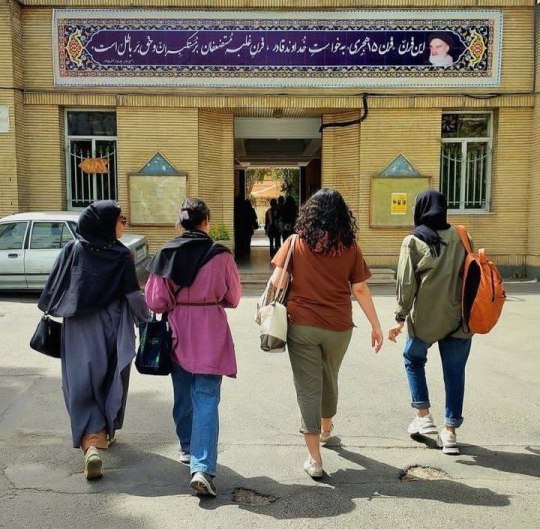
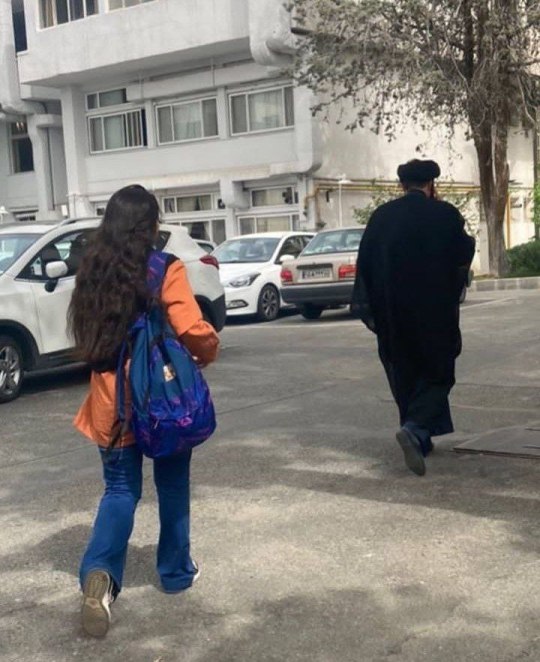
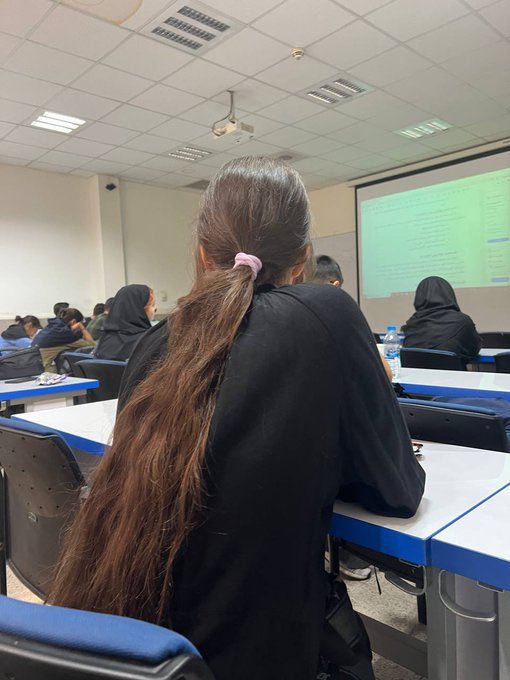
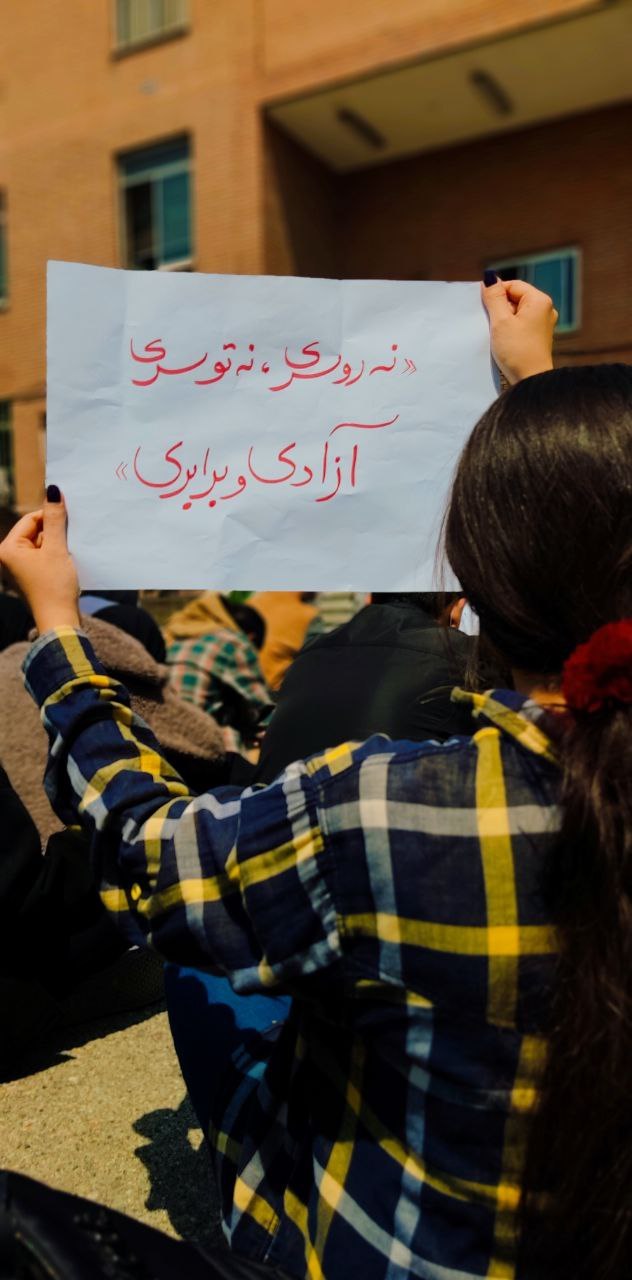
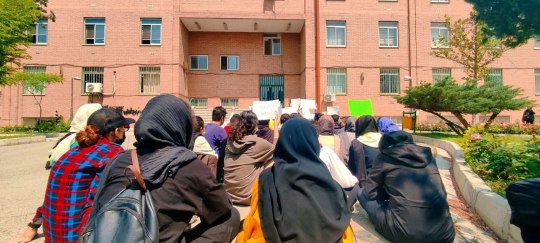
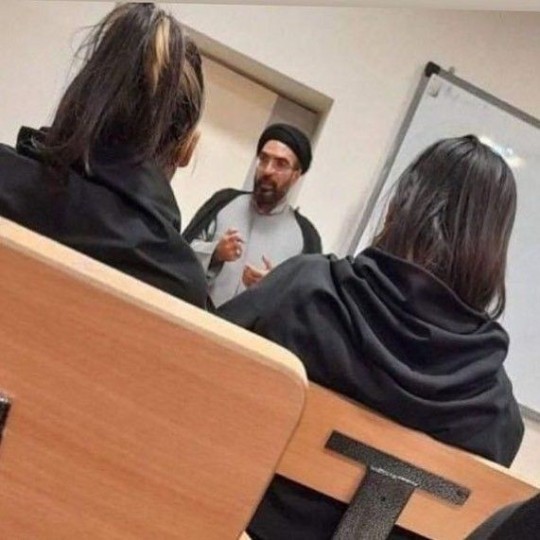
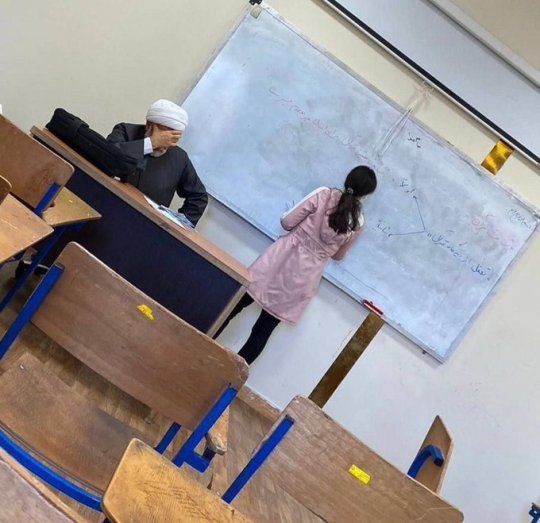
The regime's response to students taking off their hijabs is sending threatening messages to students' phones and increasing the security people. At the entrance of Universities, these security forces check people's clothes and if it's not proper they won't let you in. Some of the students wear the hijab at the entrance and take it off after they're in. They have warned our professors to not let non hijabi students sit in classes too.
One of my favorite trends in Iran now is when guys wear our hijab. These pictures are from universities. Guys wearing hijab make the security mad. This is a great act of solidarity with women against the obligatory hijab.
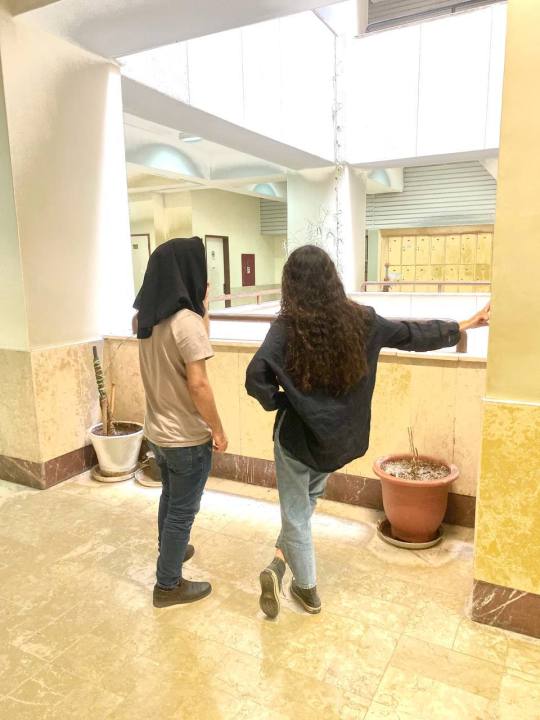
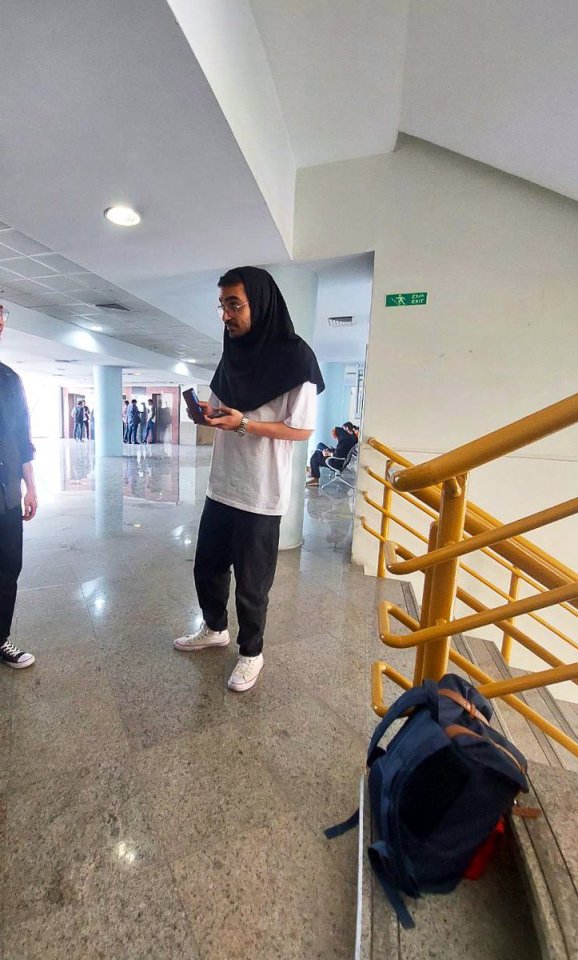
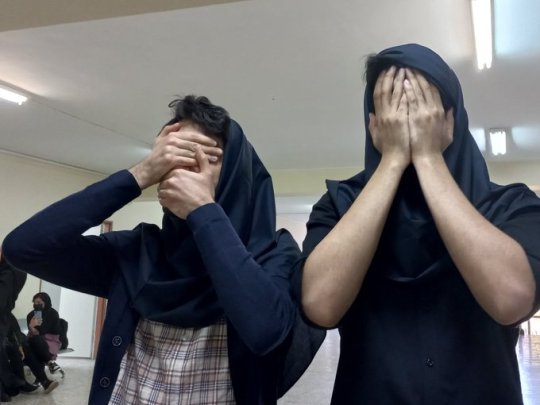
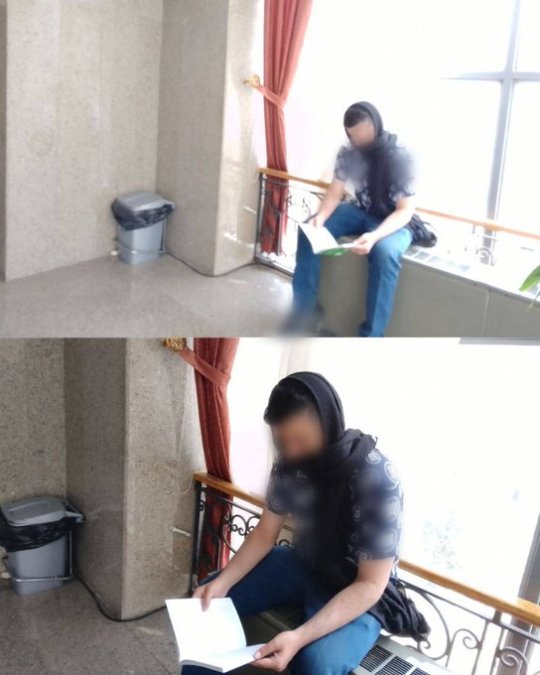
Some men have been doing either this or wearing shorts in public. The former is to ridicule the obligatory dress code and the latter is because wearing shorts in public is forbidden for guys too.
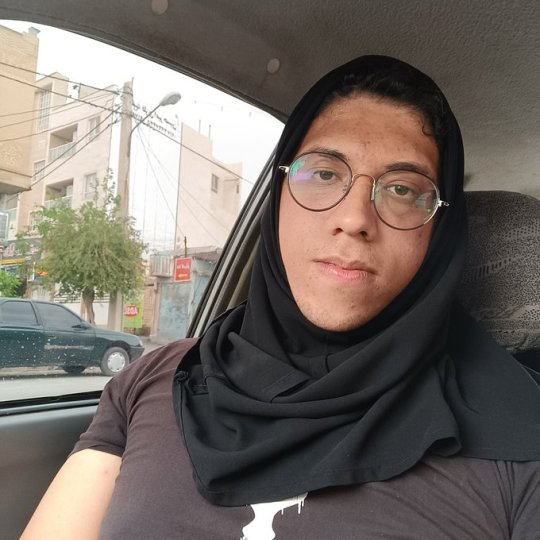
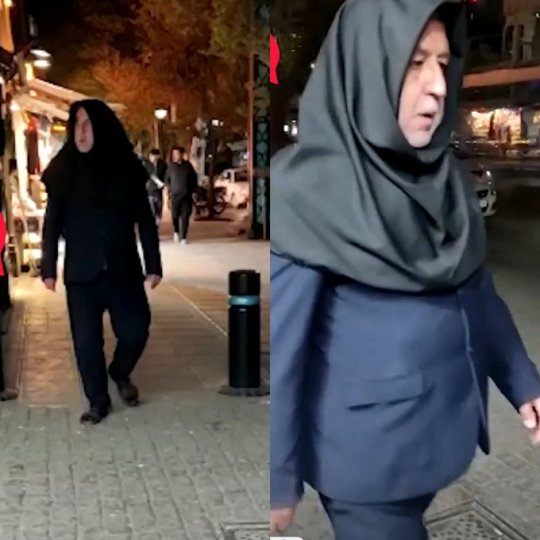
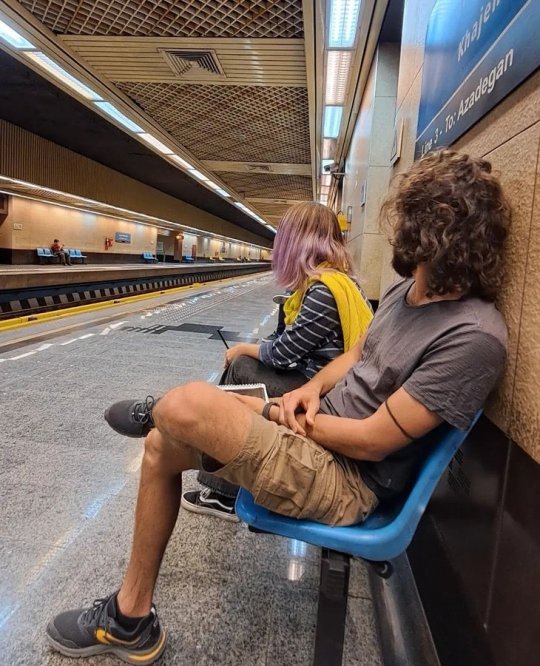
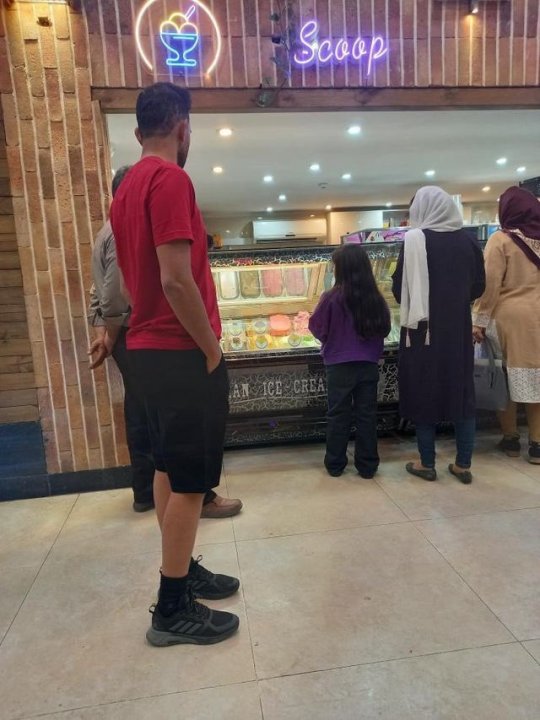
And women not wearing hijab in general. Though hijab is not our only issue, we want a whole new political system, one that is not theocratic or terroristic, hijab is something the regime won't back down from because it's one of their strongest oppressing tools. If they let us win the fight against obligatory hijab, I quote from a regime head, "people keep demanding more changes"!
So to put people against people to enforce the hijab law again, the regime has closed down many businesses (hotels, cafes, malls, bookstores, etc) for welcoming non hijabi female costumers. They have also warned taxi and bus drivers to not let non hijabi women in their vehicles.
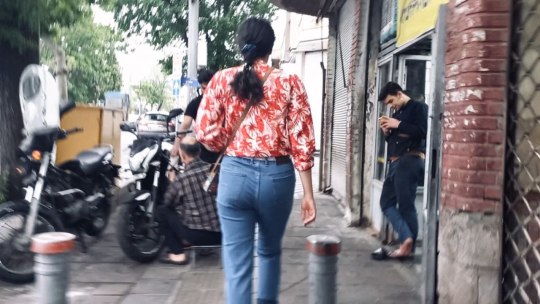
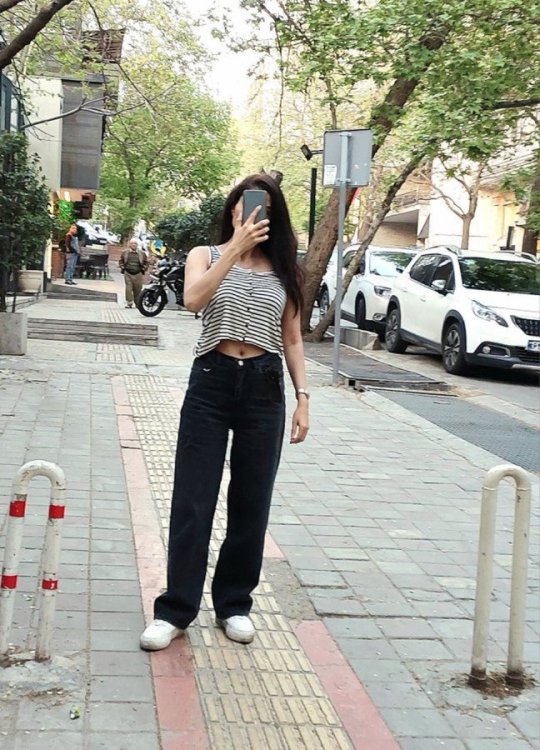
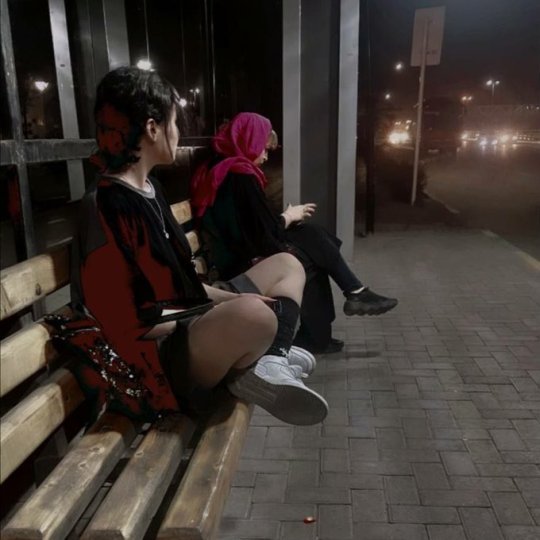
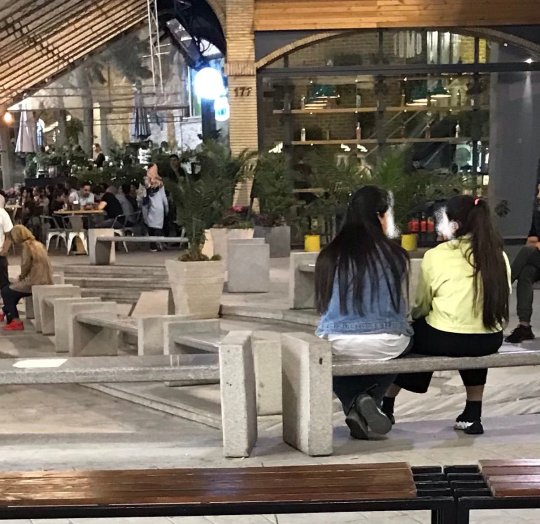
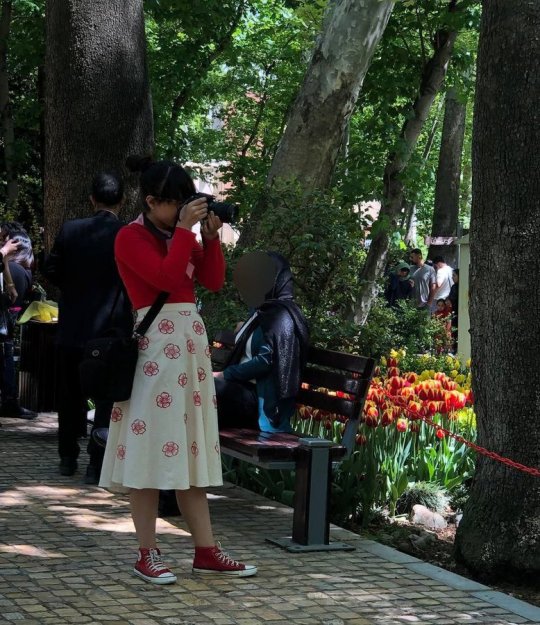
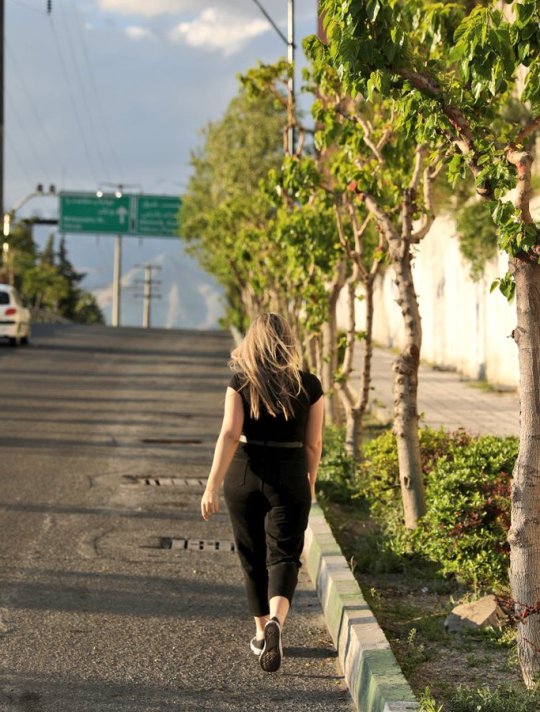
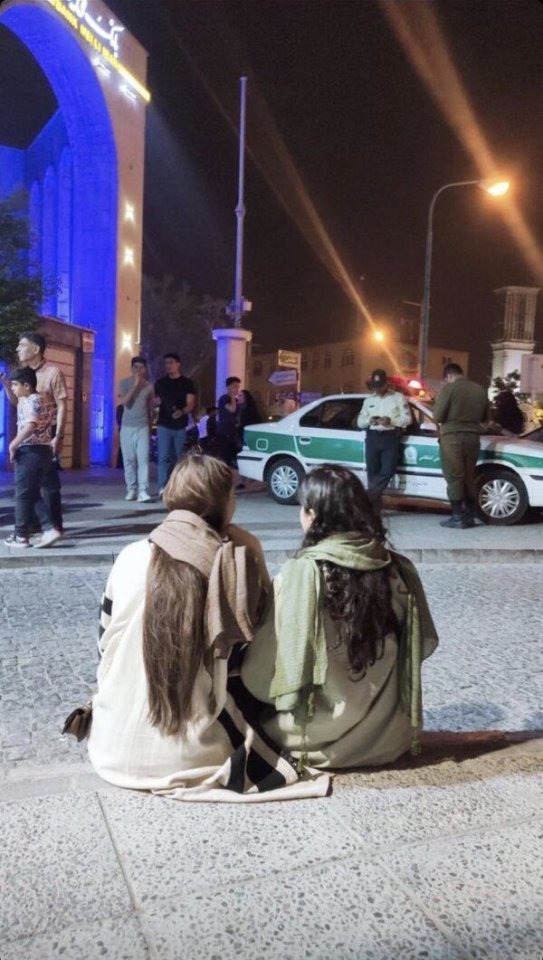
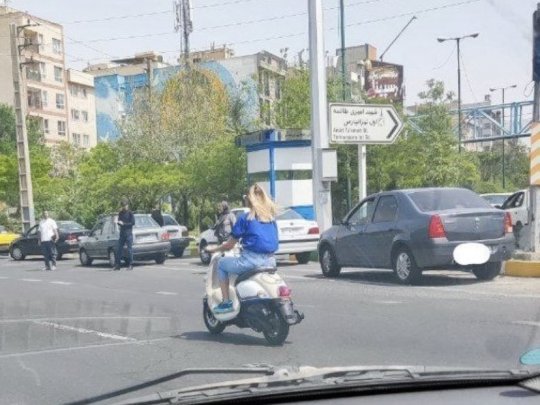
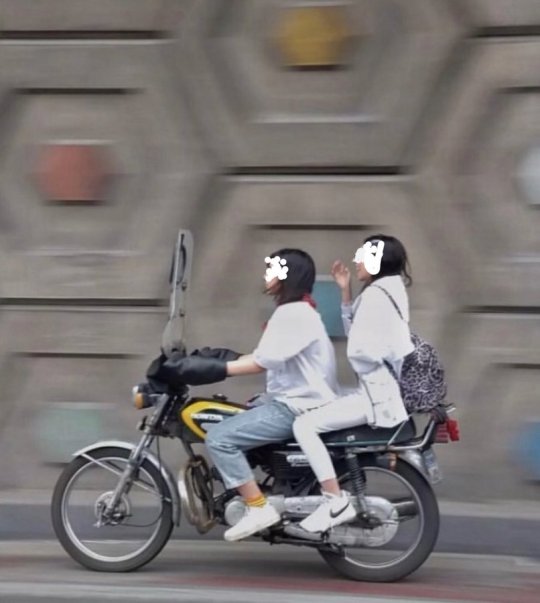
Although not everyone is disobeying the hijab law (some believe in hijab, some don't want to pay the price), the number of women who take the risk and don't wear hijab in Tehran and many other cities is high enough that you feel encouraged to keep doing it.
#iran#iran protests#iran revolution#mahsa amini#jina amini#jin jiyan azadi#women life freedom#politics#human rights#feminism#middle east#women revolution#obligatory hijab#university student#civil disobedience
2K notes
·
View notes
Text

#WomanLifeFreedom#zan zendegi azadi#mahsa amini#free iran#toomaj salehi#iran protests#baraye#pirouz#iran#hadis najafi#nika shakarami#RohsanaAhmadi#fight for freedom#freedom#Azadi#jina amini#JinaMahsaAmini#jin jiyan azadi#jin#Jiyan#iranrevolution2022#irgcterrorists
24 notes
·
View notes
Text
As an Iranian person
Nothing in my life is more shameful and pitiful and embarrassing than seeing people who support the corrupt government of my country without knowing the slightest thing
Just go search (mahsa amini) or something
So that you might be a little ashamed of your behavior and support of an dictator
378 notes
·
View notes
Text
youtube
Iranian media say a popular rapper has been sentenced to death on charges linked to the mass protests of the last two years. Toomaj Salehi publicly backed the demonstrations triggered by the death of Jina Mahsa Amini who died in the custody of Iran's so-called morality police.
#Iran#Stand with the Iranian People#Toomaj Salehi#Jina Mahsa Amini#iran#protest#toomajsalehi#Stop Ther Iranian Regime#Youtube
28 notes
·
View notes